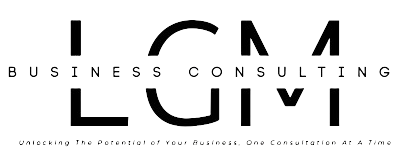As a small business owner, you wear many hats, and one of the most critical roles you play is that of an HR manager. Developing and implementing an effective HR strategy is crucial for your business’s success. Here are some tips to help you build a robust HR strategy that aligns with your business goals and fosters a positive workplace culture.
1. Define Your HR Goals
Start by clearly defining what you want to achieve with your HR strategy. This could include improving employee retention, enhancing productivity, or creating a more inclusive workplace. Your goals should align with your overall business objectives and be specific, measurable, achievable, relevant, and time-bound (SMART).
2. Develop a Strong Recruitment Process
Attracting the right talent is the foundation of a successful business. Create a detailed job description for each role, highlighting the required skills and experience. Use various platforms to advertise your job openings and consider leveraging social media to reach a wider audience. Implement a structured interview process to ensure you select the best candidates who fit your company culture.
3. Implement Comprehensive Onboarding Programs
An effective onboarding program helps new employees integrate smoothly into your company. Provide them with the necessary tools, resources, and training to perform their roles effectively. Assign mentors or buddies to new hires to guide them during their initial days and help them acclimate to the company culture.
4. Foster a Positive Work Environment
Creating a positive work environment boosts employee morale and productivity. Encourage open communication, recognize and reward employees’ achievements, and promote a healthy work-life balance. Implement policies that support employee well-being, such as flexible working hours, remote work options, and wellness programs.
5. Invest in Employee Development
Continuous learning and development are vital for keeping your workforce engaged and competitive. Offer training programs, workshops, and opportunities for professional growth. Encourage employees to set personal development goals and provide the resources they need to achieve them. Investing in your employees’ growth will not only benefit them but also contribute to your business’s success.
6. Establish Clear Policies and Procedures
Having clear HR policies and procedures helps ensure consistency and fairness in managing your workforce. Create an employee handbook that outlines your company’s policies on various aspects such as attendance, leave, performance reviews, and code of conduct. Regularly review and update these policies to keep them relevant and compliant with the latest regulations.
7. Focus on Employee Engagement
Engaged employees are more productive, loyal, and committed to your business. Conduct regular surveys to gauge employee satisfaction and gather feedback. Organize team-building activities and social events to foster a sense of community. Encourage open dialogue and create channels for employees to voice their concerns and suggestions.
8. Implement Performance Management Systems
A robust performance management system helps you track and evaluate employee performance effectively. Set clear performance expectations and provide regular feedback. Conduct annual performance reviews to discuss achievements, identify areas for improvement, and set new goals. Recognize and reward high performers to motivate and retain top talent.
9. Ensure Legal Compliance
Staying compliant with employment laws and regulations is crucial to avoid legal issues and penalties. Keep yourself updated with the latest labor laws and ensure your HR policies and practices adhere to them. Consider consulting with an HR expert or legal advisor to navigate complex legal requirements and mitigate risks.
10. Embrace Technology
Leverage HR technology to streamline your HR processes and improve efficiency. Implement HR software to manage employee records, payroll, attendance, and performance reviews. Use recruitment platforms and applicant tracking systems to simplify your hiring process. Embracing technology will save you time and resources, allowing you to focus on strategic HR initiatives.
Conclusion
Developing a strong HR strategy is essential for the growth and success of your small business. By defining clear HR goals, implementing effective recruitment and onboarding processes, fostering a positive work environment, investing in employee development, and leveraging technology, you can build a motivated and productive workforce. Remember, your employees are your greatest asset, and a well-crafted HR strategy will help you attract, retain, and develop the talent you need to drive your business forward.

